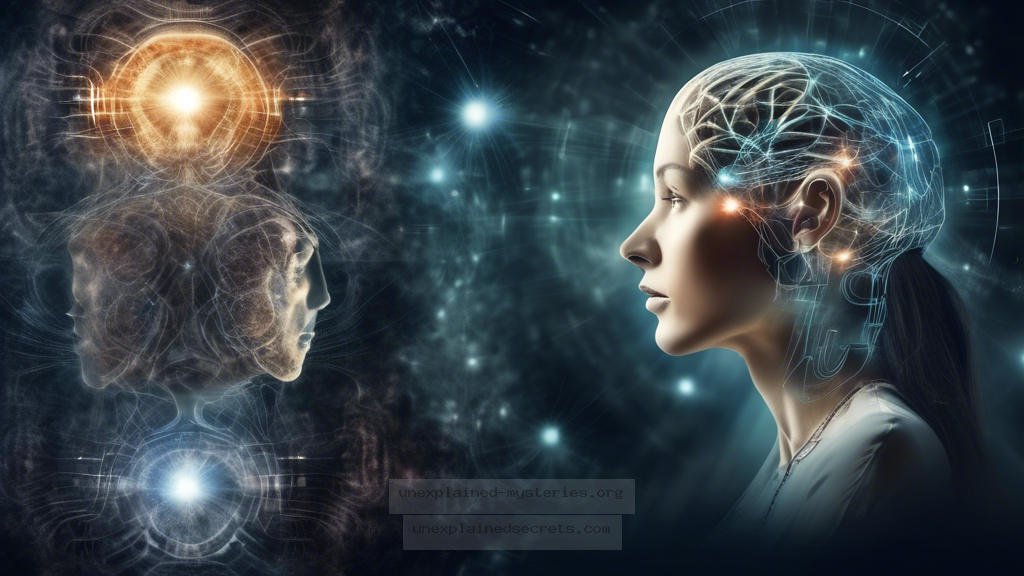Can the Human Mind Truly Predict the Future? Exploring Documented Cases of Precognition
Can the Human Mind Truly Predict the Future? Exploring Documented Cases of Precognition
Throughout history, the phenomenon of precognition—the ability to perceive or predict future events—has intrigued humanity. This question matters not just for the realm of paranormal studies but also for the exploration of consciousness and the limits of human potential. Can we trust these claims, or are they merely coincidences? In this comprehensive exploration, we will delve into the documented cases of precognition, historical accounts, scientific perspectives, and the implications of such abilities.
Understanding Precognition
Precognition refers to the claimed ability to gain information about future events before they happen. Unlike ordinary intuition, which may rely on unconscious pattern recognition, precognition suggests a deeper connection to time and perception. The concept challenges our understanding of time as a linear progression. Instead, it implies that time might be more fluid, allowing glimpses into what has not yet occurred.
Several theories attempt to explain precognition, ranging from psychological to quantum physics interpretations. Some suggest that precognition is merely a heightened sense of awareness, while others propose that it involves tapping into a collective unconscious or accessing alternate realities.
Historical Accounts of Precognition
Throughout history, numerous documented cases have suggested the existence of precognitive abilities. One notable example is that of the famous British author and playwright, W. Somerset Maugham. Maugham reported several instances where he had dreams that predicted future events. In one instance, he dreamed of a plane crash that occurred shortly after, leading him to question whether he had glimpsed a future reality.
Another compelling case is that of the “Titanic” disaster. Several survivors reported having dreams or feelings of foreboding about the ship’s ill-fated maiden voyage. The stories of these individuals have been collected and analyzed, providing a rich tapestry of anecdotal evidence that suggests precognition may not be as far-fetched as many believe.
Documented Cases of Precognition
| Case | Description | Date |
|---|---|---|
| W. Somerset Maugham | Reported dreams predicting events, including a plane crash. | 20th Century |
| Titanic Survivors | Dreams and premonitions about the ship’s sinking. | 1912 |
| Abraham Lincoln | Had a dream about his assassination days before it happened. | 1865 |
| Mother Shipton | 16th-century prophetess known for predicting events. | 16th Century |
Scientific Testing of Psychic Abilities
Scientific inquiry into psychic phenomena, including precognition, has been met with both skepticism and curiosity. Organizations such as the Stanford Research Institute and the Institute of Noetic Sciences have conducted studies to investigate claims of precognition under controlled conditions. One notable experiment involved “Ganzfeld” tests, where subjects were placed in sensory deprivation and asked to predict images being sent to them from another location.
While some studies have yielded statistically significant results, others have been criticized for methodological flaws and lack of reproducibility. Skeptics argue that any apparent precognitive experiences can be attributed to cognitive biases or chance. However, proponents maintain that the cumulative evidence calls for a more open-minded exploration of these phenomena.
Core Concepts and Theories of Precognition
Several theories attempt to explain how precognition might work. One prominent theory is based on quantum mechanics, suggesting that consciousness may interact with quantum fields, allowing for non-linear perceptions of time. This idea posits that what we perceive as time could be more like a landscape, where past, present, and future coexist simultaneously.
Key Insight: Theoretical physicist David Bohm proposed that the universe is an interconnected whole, and our awareness might tap into this non-local reality, possibly accounting for precognitive experiences.
Another perspective stems from psychology, where precognition is viewed as a form of intuition or subconscious processing of information. This view posits that people can subconsciously pick up cues from their environment, leading to feelings of foreboding or vivid dreams about future events.
Practical Implications of Precognition
The implications of validating precognition are profound. If proven true, it could change our understanding of free will, fate, and the nature of reality itself. In practical terms, those who believe in their precognitive abilities often report heightened intuition that guides their decisions. This has led to the development of practices like meditation and mindfulness to enhance intuitive skills.
Moreover, businesses and leaders who embrace holistic approaches may begin to consider intuitive insights as valuable input in decision-making processes. This could lead to shifts in how we approach leadership and strategy in various fields, from business to healthcare.
Alternative Perspectives on Psychic Phenomena
Not everyone agrees on the existence of precognition. Many skeptics argue that what may seem like precognitive experiences can often be explained through psychological phenomena such as confirmation bias, where individuals remember accurate predictions while forgetting inaccurate ones. Others suggest that precognition may be a product of cultural narratives that shape our interpretations of dreams and premonitions.
Furthermore, some researchers advocate for a more cautious approach, emphasizing the need for rigorous scientific testing before drawing conclusions about psychic abilities. They urge that anecdotal evidence, while compelling, should not be the sole basis for belief in precognition.
Common Misconceptions About Precognition
There are several misconceptions surrounding precognition that can hinder open discussions about the topic. One common myth is that precognitive abilities are a rare gift reserved for a select few. In reality, many people claim to have had precognitive experiences, whether they recognize them or not.
Another misconception is that precognition is always accurate. While some individuals may have consistent experiences, others may find their predictions to be hit-or-miss. This variability can lead to skepticism even among those who have had legitimate precognitive experiences.
Warning: Relying solely on perceived precognitive insights without critical thinking can lead to poor decision-making. It’s essential to balance intuitive insights with rational analysis.
Best Practices for Investigating Precognition
For those interested in exploring precognitive abilities, here are some best practices:
- Keep a Dream Journal: Documenting dreams can help identify patterns or themes that may suggest precognitive insights.
- Practice Mindfulness: Engaging in mindfulness or meditation can enhance intuitive awareness and potentially lead to precognitive insights.
- Seek Community: Joining groups that explore psychic phenomena can provide support and shared experiences.
- Be Skeptical: Maintain a critical mindset. Consider all possibilities and avoid jumping to conclusions based solely on feelings.
Future Developments in Research
As interest in psychic phenomena continues to grow, research into precognition is likely to evolve. Advances in neuroscience may provide insights into how the brain processes information and the potential for perceiving future events. Furthermore, the integration of quantum theory with consciousness studies could pave the way for new understandings of time and perception.
Ongoing studies in parapsychology are increasingly employing rigorous scientific methods, which may lead to more definitive conclusions about precognition. As researchers unravel the complexities of consciousness, we may find valuable insights into the nature of human perception and potential.
Conclusion
In conclusion, the question of whether the human mind can truly predict the future remains a captivating subject for exploration. Documented cases of precognition, while often anecdotal, present intriguing evidence that challenges our conventional understanding of time and consciousness. Although scientific consensus has not yet been achieved, the ongoing investigation into psychic abilities may yield profound insights into the nature of reality itself.
As we continue to explore the boundaries of human perception, it is crucial to approach the topic of precognition with an open mind while maintaining a critical perspective. Whether viewed through the lens of science, psychology, or personal experience, precognition continues to inspire curiosity, challenge beliefs, and invite deeper inquiry into the mysteries of the human mind.
Other Articles
Recent Posts
- What Happened to Flight MH370? The Conspiracy Theories That Still Haunt Us
- What Secrets Lurk Within the Walls of the Infamous Trans-Allegheny Lunatic Asylum?
- What Evidence Supports the Existence of Bigfoot in the Pacific Northwest?
- What Happened to the Indus Valley Civilization? Unraveling the Mysteries of Ancient Urban Life
- Can Telepathy Be Scientifically Proven Through Laboratory Evidence?







